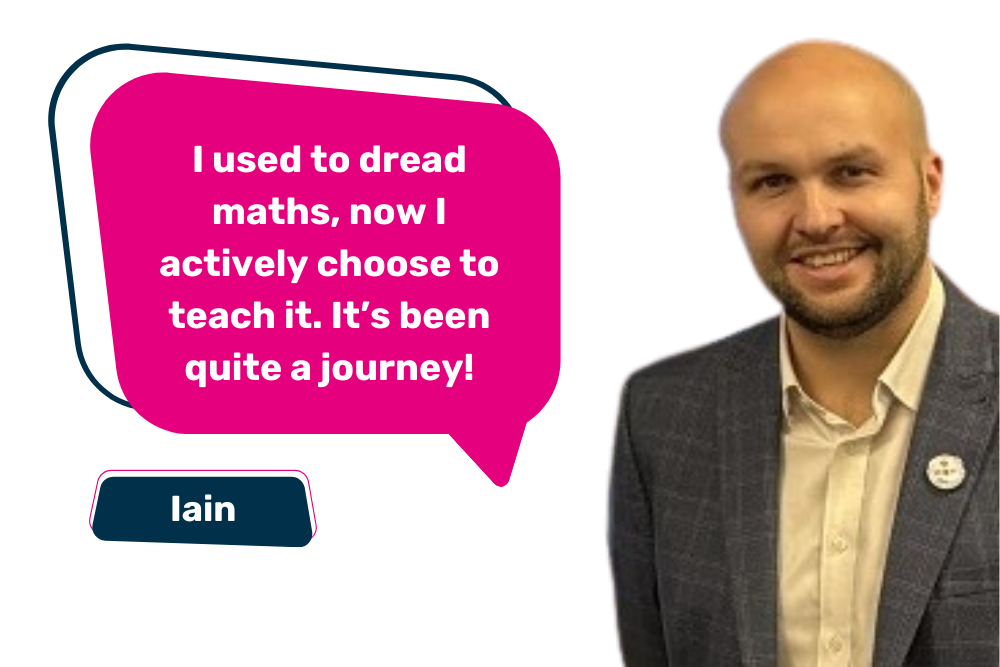Iain never saw himself as a “maths person.” At school, he excelled in essay-based subjects and saw maths as a challenge to get through. After scraping a C grade in his maths GCSE, he assumed he'd left numbers behind for good. “My relationship with maths at school was pretty poor – it just didn’t click for me,” Iain says. “By secondary school, the more challenging it got, the less keen I became.”
Deciding on a career in education
However, a volunteering opportunity at university changed his direction. While studying History and Politics, Iain began helping in local schools and quickly realised that education was where he belonged. “I went into it without much thought, but straight away I felt like the school environment was the place for me,” he says. “By the end of my degree, I’d done a school placement every year.”
Still, the idea of becoming a teacher brought back all those old feelings about maths. “Something that made me hesitate was the maths side of things,” he admits. “Did I want the responsibility of teaching a subject that I’d had such a tough time with myself?”
Discovering it wasn't too late to improve at maths
Despite his doubts, after university Iain completed his primary teacher training – including passing the compulsory maths skills test on his first try, which was a major turning point. “It was a flashback to GCSE revision, and I was nervous. But passing first time was a big confidence boost. It helped me realise I could improve, that it wasn’t too late.”
Today, Iain is a Head of School at Squires Lane Learning Federation in London. Remarkably, part of his role involves teaching – and loving – mathematics. “It’s probably my favourite time of the week. Working with small booster groups, helping the children build confidence – it brings everything full circle. I can remember being in a group like that myself.”
The benefits of National Numeracy's Numeracy Champion training and Schools & Families programmes
Iain has embraced a whole-school approach to building number confidence for both pupils and staff. He and the assistant headteacher completed National Numeracy’s Numeracy Champion training and plan to roll it out across their schools in 2025. “It’s maths in a low-threat, open way,” he says. “It breaks down stigmas and changes people’s perspectives. It might also help staff who may not have whole class teaching roles but still support groups of children.”
The school is also part of National Numeracy’s Schools & Families programme, which supports parents and carers in engaging with maths at home. “We want to engage our parental community so they can support the children with their learning,” says Iain. “Giving maths a real-life context – money, measurement, problem-solving – demonstrates to children the transferable skills they’ll need in real life.”
The link between number confidence and skills and money management
This year’s National Numeracy Day focused on money, and Iain says improving his number confidence has had real-life benefits beyond the classroom. “Improving my number skills and confidence has helped me with money management,” he says. “Being confident with numbers and working things out mentally or doing quick calculations has definitely had a positive impact for me.”
Maths improvement and a sense of achievement
Reflecting on his journey, Iain encourages others to challenge their assumptions. “It’s never the wrong time to get better at something,” he says. “We tell our pupils to keep trying – it’s the same for adults. That sense of achievement is real when you stick with it.”
His younger self would be surprised at where he’s ended up. “The word I’d use to describe how I used to feel about maths is ‘dread’,” he says. “Now, it’s ‘enjoyment’. Today I actively choose to teach maths. It’s been quite a journey!”





